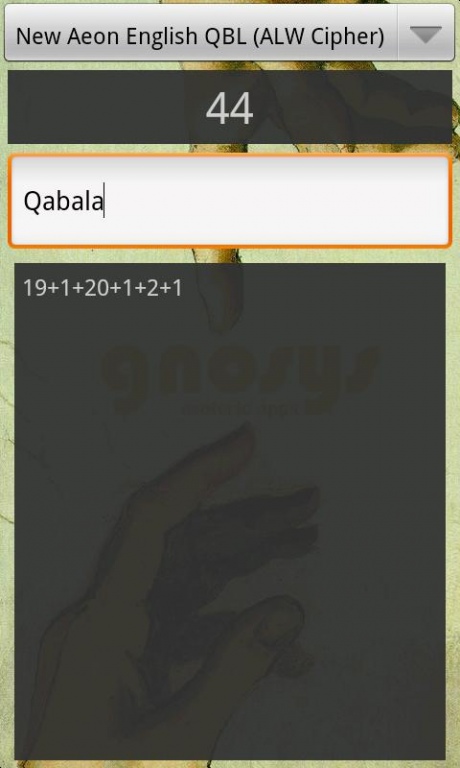

In this inscription, Sargon II states: "the king built the wall of Khorsabad 16,283 cubits long to correspond with the numerical value of his name." The first documented use of gematria is from an Assyrian inscription dating to the 8th century BCE, commissioned by Sargon II.

Neither the concept nor the term appears in the Hebrew Bible itself. It is largely used in Jewish texts, notably in those associated with the Kabbalah. The word has been extant in English since at least the 17th century from translations of works by Giovanni Pico della Mirandola. Some also hold it to derive from the order of the Greek alphabet, gamma being the third letter of the Greek alphabet ("gamma tria"). It is likely that both Greek words had an influence on the formation of the Hebrew word. Etymology Īlthough the term is Hebrew, it may be derived from the Greek γεωμετρία geōmetriā, " geometry", which was used as a translation of gēmaṭriyā, though some scholars believe it to derive from Greek γραμματεια grammateia "knowledge of writing". In early Jewish sources, the term "gematria" can also refer to other forms of calculation or letter manipulation, for example atbash. Donations of money in multiples of 18 are very popular. This has made 18 a " lucky number" among the Jewish people. "alive"), which is composed of two letters that (using the assignments in the Mispar gadol table shown below) add up to 18. A well-known short example of Hebrew numerology that uses a gematria cipher is the word חי chai ( lit. Gematria sums can involve single words, or a string of lengthy calculations. There is currently no academic consensus over whether Hebrew gematria or Greek isopsephy was used first. Similar systems have been used in other languages and cultures derived from or inspired by Hebrew gematria Arabic abjad numerals, and English gematria. Aru was very different from the gematria systems used by Hebrew and Greek cultures, which used alphabetic writing scripts. The value of these words were assigned in an entirely arbitrary manner and correspondences were made through tables, and so cannot be considered a true form of gematria. Similar systems have been used in other languages and cultures: the Greeks isopsephy, and later, derived from or inspired by Hebrew gematria, Arabic abjad numerals, and English gematria.Īlthough a type of gematria system ('Aru') was employed by the ancient Babylonian culture, their writing script was logographic, and the numerical assignments they made were to whole words. Gematria is still widely used in Jewish culture. Hebrew alphanumeric ciphers were probably used in biblical times, and were later adopted by other cultures. A single word can yield several values depending on the cipher which is used. Gematria ( / ɡ ə ˈ m eɪ t r i ə/ Hebrew: גמטריא or gimatria גימטריה, plural גמטראות or גימטריאות, gimatriot) is the practice of assigning a numerical value to a name, word or phrase according to an alphanumerical cipher. Assigning a numerical value to a name, word or phrase based on its letters


 0 kommentar(er)
0 kommentar(er)
